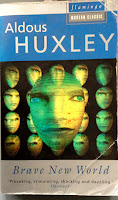Welcome to the jargon junkyard: The rise and fall of buzzwords

This was originally posted on LinkedIn Pulse on November 14, 2015. Is it time to reevaluate the value (or not) of some of the jargon we have gone used to and to recognise (and “retrench”, to use another euphemism) those dinosaurs who failed to evolve with the times? “B ig data” has been dethroned as “real-time data” has taken the reins. “Troubleshooting” is on its way out: the preferred term now is either “problem-solving” or “diagnosing”. And, other buzzwords like “virtual team” and “subject matter expert” may also have fallen victim to this extinction event. These were the conclusions reached by a study of 500,000 tech job postings by Seattle firm Textio ( as Bloomberg Business reported recently). Image credit: By Dellex (Own work) /CC BY-SA 4.0 / Wikimedia Commons If a word or phrase is used frequently widely enough - especially if picked up by social media or the blogosphere - it can quickly become part of the industry vernacular. B...




